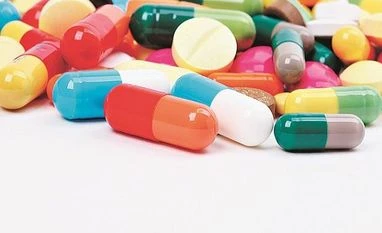An employee logs into a newly developed app of his pharma company for tracing his recent contacts. It is only after such tracing that the employee is able to enter his office using his employee card.
Such norms are now part and parcel of the pharma industry after some coronavirus (Covid-19) positive cases and deaths were reported in pharma manufacturing plants like the one blonging to Cadila Pharma.
Already known for their stringent good manufacturing practice (GMP) and rigorous standards of procedures (SOPs), many of which are aimed at meeting international regulatory standards, pharma companies are tightening factory and office norms in the wake of the recent Covid-19 deaths at plants.
After 21 employees were found to be infected with the novel coronavirus (Covid-19) and three, including a general manager, died at Ahmedabad-based Cadila Pharma's Dholka manufacturing plant, anxious employees, who were already taking extra precautions on their own, demanded more stringent SOPs, say sources. An emailed query to Cadila Pharma did not elicit any response.
"There are already SOPs, guidelines and GMP that pharma companies have to follow to meet regulatory standards. But with the recent Covid-10-related deaths at manufacturing plants, companies are getting more serious about safety and hygiene and are going beyond the statutory norms. There is a fear psychosis among employees who are demanding that their employers take more stringent steps to avoid any infection," said a senior official of a pharma company on condition of anonymity.
Lupin has developed an in-house app which tracks employees' health regularly. An employee is required to enter details about any coronavirus like symptoms about himself and his family members in the app (employee self health declaration app). Once this data is fed into the app, the system processes it for any red flags. If the person does not get a green tick in the app, he cannot come to work.
Apart from the general sanitization of buses and plants, Lupin and many other pharma companies have now started sanitising raw material entering the plant. "Any truck that enters the plant is sanitized, the person handling it has to wear protective gear and all the packages are sanitized," Chunotkar said.
Plants ad started thermal screening from the first week of March when the first cases started coming to light and started quarantining employees with a travel history. As for employee buses, companies have started reducing the occupancy levels during the lockdown - from 50 per cent occupancy, Lupin has brought it down 40 per cent occupancy. Companies are also asking people who can work remotely to stay at home, especially those working in the accounts or purchase departments, to reduce the number of employees entering the premises.
Lupin is also carrying out mock-drills to see how the entire set-up reacts in case someone is sick. The drills include isolating the infected person, the factory medical officer and government officials visiting him, his testing and moving the patient to a hospital. "We have done these drills in every plant twice during the lockdown period. We have to note what are the mistakes, and how can we be faster in reacting," Chunotkar explained.
Canteen management is a major area on manufacturing sites. The lunch timings have been extended at all sites. Glenmark said that a team had been put in place to co-ordinate with the employees visiting the canteen. "If someone has breakfast at 8 am, he will be called for lunch at 12 pm, while someone who went at 10:30 for breakfast would be probably called at 2:30 pm," said a company spokesperson. Lupin has set up pandals in some plants, and opened up large conference rooms to split the workforce while they eat.
Moreover, employees have been given diaries to note down the names of each and every person they come in contact with everyday. This would help with contact tracing in case of any infection.
Legal liabilities like enhancing insurance coverage are also being taken, apart from on-site measures like increasong the frequency of certain safety steps.
"Instead of once, temperatures are now being measured twice or thrice. Declarations are being taken daily from employees and paid leave is being offered. Medical in-house facilities are being ramped up. Industry members know that if one gets infected, scores of employees will have to be quarantined. So no one is taking chances. No one is taking it casually," said Viranchi Shah, chairman of Indian Drug Manufacturers' Association (IDMA), Gujarat.
For instance, Torrent Pharma too, has developed an in-house app that allows employees to log-in with contact tracing details before leaving their homes or reaching office.
Meanwhile, according to H G Koshia, Commissioner, Food and Drug Control Administration (FDCA), Gujarat, other measures like more stringent reception of raw materials and segregation of teams are also being undertaken.
"Guidelines by several regulatory bodies, industry bodies, government and international organisations are already being followed. But pharma companies have become more and more cautious after the deaths which were unfortunate. However, since several parts of pharma production are highly automated, human intervention is minimal," Koshia added.
Unlock 30+ premium stories daily hand-picked by our editors, across devices on browser and app.
Pick your 5 favourite companies, get a daily email with all news updates on them.
Full access to our intuitive epaper - clip, save, share articles from any device; newspaper archives from 2006.
Preferential invites to Business Standard events.
Curated newsletters on markets, personal finance, policy & politics, start-ups, technology, and more.
)